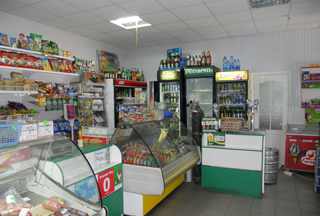
How much will prices increase in Armenia after joining the Customs Union?

After joining the Customs Union prices for many products in Armenia will increase. This will affect mainly products that are imported from non-CU countries. For most products imported from third countries the customs fee is maximum 10%, which is considered low. According to the policy of the CU, customs fees are much higher than what Armenia has now.
Currently our officials are openly speaking about price increase in Armenia as a result of joining the Customs Union, and they say that we are going to have difficult negotiations with the Customs Union. Garegin Melkonyan, minister of economy of Armenia, says that for 60 per cent of 11,553 types of products Armenia is importing the tariffs of the Customs Union are higher than in Armenia. For 14.5 per cent of products the tariffs are lower, and for 17 per cent – the same (for other types of products calculations are done similarly).
However, the important thing is not the number of types of products that have higher tariffs but the volume that these products have in the economy. For example, it could be differently and a small number of product types only could have higher import tariffs, however they could be the most demanded goods in Armenia.
Unfortunately this picture is even more complicated. We have discussed the list of products that have higher import tariffs and compared them. Among 20 types of products that are the most demanded in Armenia for import the customs tariffs are higher for only 2-3%. For example, petroleum import tariff in Armenia is zero, however it is 5 per cent in the CU. Armenia imports petroleum mainly from European countries (Romania, Bulgaria). This means that after joining the Customs Union the price of petroleum will go up by 5%.
For grain import the tariff in Armenia is zero, however it is 5 per cent in the Customs Union. However, this will not affect our domestic prices of grain and bread as Armenia is importing grain mostly from Russia and Kazakhstan.
There are products that are demanded for consumption in Armenia that will be affected by the CU tariffs. For example, drugs are among the first ten items most demanded for import. For example, in 2012 Armenia imported drugs worth of 94 million dollars. Drug import tariff in Armenia is zero, however it is 8-12.5% in the Customs Union. Most drugs are imported from France, Germany, Switzerland, Italy and the USA, which means that prices of drugs will go up at least by 8%. To note, in 2012 Armenia imported drugs worth of 3.5 million dollars only from Russia.
Sugar import tariff in Armenia is 10%, which is approximately 60-65 dollars per ton. According to the CU policy, the rate importers have to pay for one ton of imported sugar is 250 dollars.
Poultry import tariff in Armenia is currently 10%. In the Customs Union this tariff is 25%, however, not less than EUR 0.2 per 1 kilo.
According to a document posted on the web site of the economy ministry, the customs fee for import of vehicles in the Customs Union starts from 25% (in some cases it is calculated by engine type and volume and can start as high as 50%). Currently in Armenia there is no customs fee for import of Russian vehicles, and there is 10 per cent customs fee for import of foreign vehicles.
In 2012 Armenia imported 32,000 passenger vehicles, with 2,000 out of which made in Russia. In 2012 the customs amounts for 30,000 vehicles was 220 million dollars. This means that importers of these vehicles together paid 22 million dollars the budget. It is worth mentioning that the Customs Union import tariffs are higher for spare parts too.
The customs fee for toilette paper import is 17.5-18.5 per cent, while it is 10 per cent in Armenia now. This product is mostly imported from Poland and other European countries, as well as there is some import from Turkey, China and Ukraine.
The RA Economy deputy minister says that the Armenian government is negotiating the tariffs of 850 types of products with the Customs Union in order to leave the customs tariffs for those products the same.
What if the negotiation fails? Will Armenia refuse to join the Customs Union or will agree with the high import tariffs? The deputy minister said to radio Liberty that it is excluded that the CU may not compromise. “We are not expecting to be refused because in the very beginning we said that for certain types of products it would be difficult for us to increase the tariffs. Even the roadmap includes a provision that says we will negotiate agreement on such exceptions. We do not object to the list of products that is under discussion now. Negotiations will show how many products will be included in that list. Tell you frankly no one can say now what that list will look like,” said G. Melkonyan.
This means that it is not yet known in the case of which of the 850 brand names the CU customs fees won’t be applied. By the way, let’s note that starting from January 1 of the current year EU was established GSP+ trade mode for Armenia, which means that the products that are exported to Europe from Armenia will have either a zero customs fees or will be cleared at very low prices. Besides Armenia, this mode is granted to 9 other states of the world (including Georgia). Will after Armenia’s membership to CU EU revise its decision to grant trade privileges to Armenia? Melkonyan said he didn’t think so. At any rate, it is not right to make predictions. It would be quite natural for Europeans to do so. This means that in the event of unsuccessful negotiations with the CU not only the Armenian consumers will suffer but also the businessmen.
By Babken Tunyan























